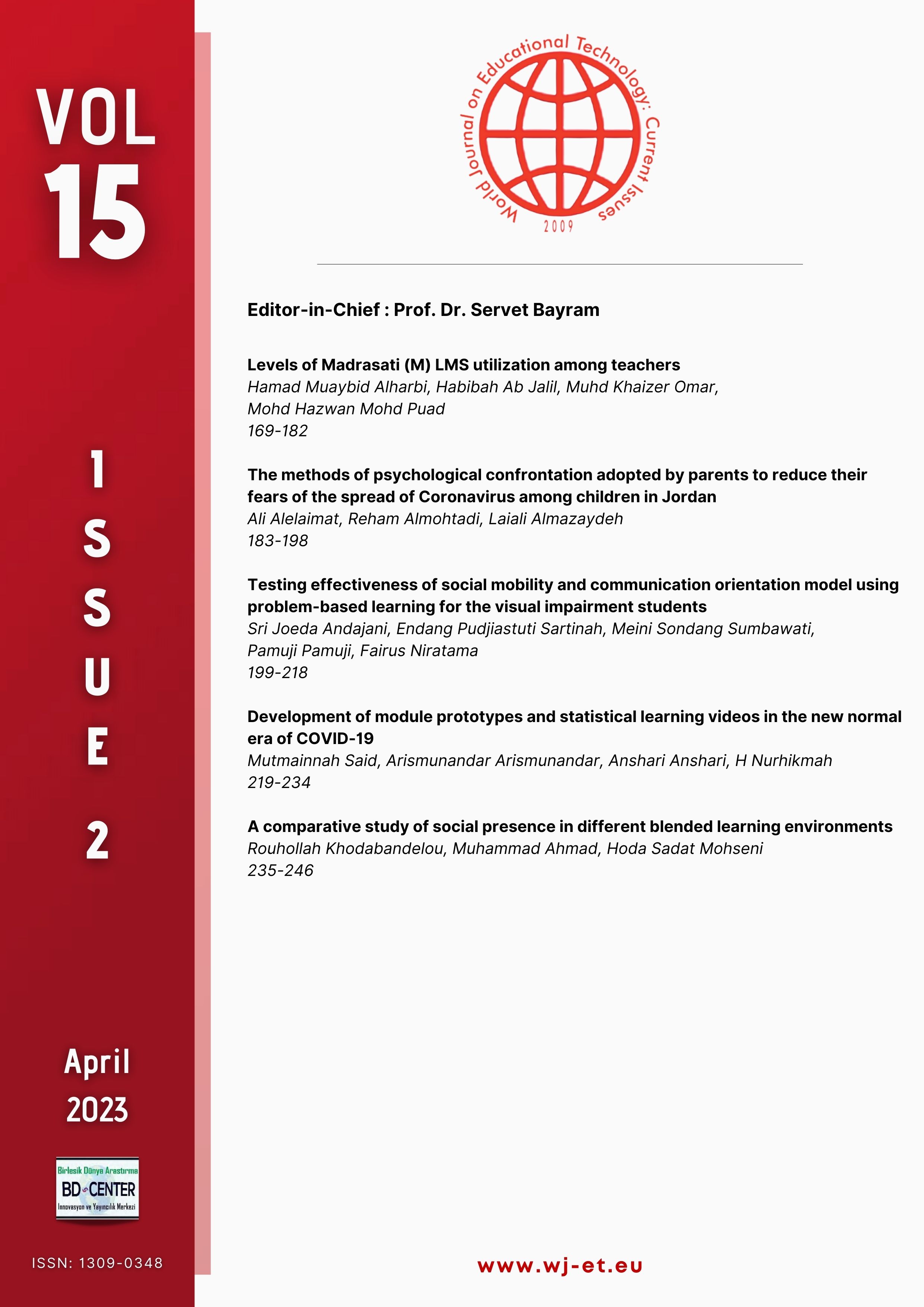A comparative study of social presence in different blended learning environments
Main Article Content
Abstract
In the post-COVID-19 pandemic, blended learning is regarded as a topic of great importance. It has progressively spread in the higher education systems. Enquiring distinct blended learning environments with a queer focus on social presence should assist academics in the better formulation of highly effective and efficient learning platforms. This study investigated the social presence as one of the main elements of the community of inquiry framework sodality together with its blinkers relevant to three varying blended learning platforms within higher education. Whilst the responding sample population was 348 Malaysian undergraduates from multiple universities, the data collection tool was a questionnaire employed from past studies. A pilot study examined the reliability and validity of the deployed instrument and principal suppositions of simplex multivariate analysis of variance were screened before data analysis. Consequently, this analysis ascertained minor variations in participating students’ perceptions regarding social presence and its components in terms of blended learning platforms.
Keywords: Blended learning; higher education; learning environment; Social presence.
Downloads
Article Details

This work is licensed under a Creative Commons Attribution 4.0 International License.
World Journal on Educational Technology: Current Issues is an Open Access Journal. The copyright holder is the author/s. Licensee Birlesik Dunya Yenilik Arastirma ve Yayincilik Merkezi, North Nicosia, Cyprus. All articles can be downloaded free of charge. Articles published in the Journal are Open-Access articles distributed under CC-BY license [Attribution 4.0 International (CC BY 4.0)].
Birlesik Dunya Yenilik Arastirma ve Yayincilik Merkezi (BD-Center)is a gold open-access publisher. At the point of publication, all articles from our portfolio of journals are immediately and permanently accessible online free of charge. BD-Center articles are published under the CC-BY license [Attribution 4.0 International (CC BY 4.0)], which permits unrestricted use, distribution, and reproduction in any medium, provided the original authors and the source are credited.
